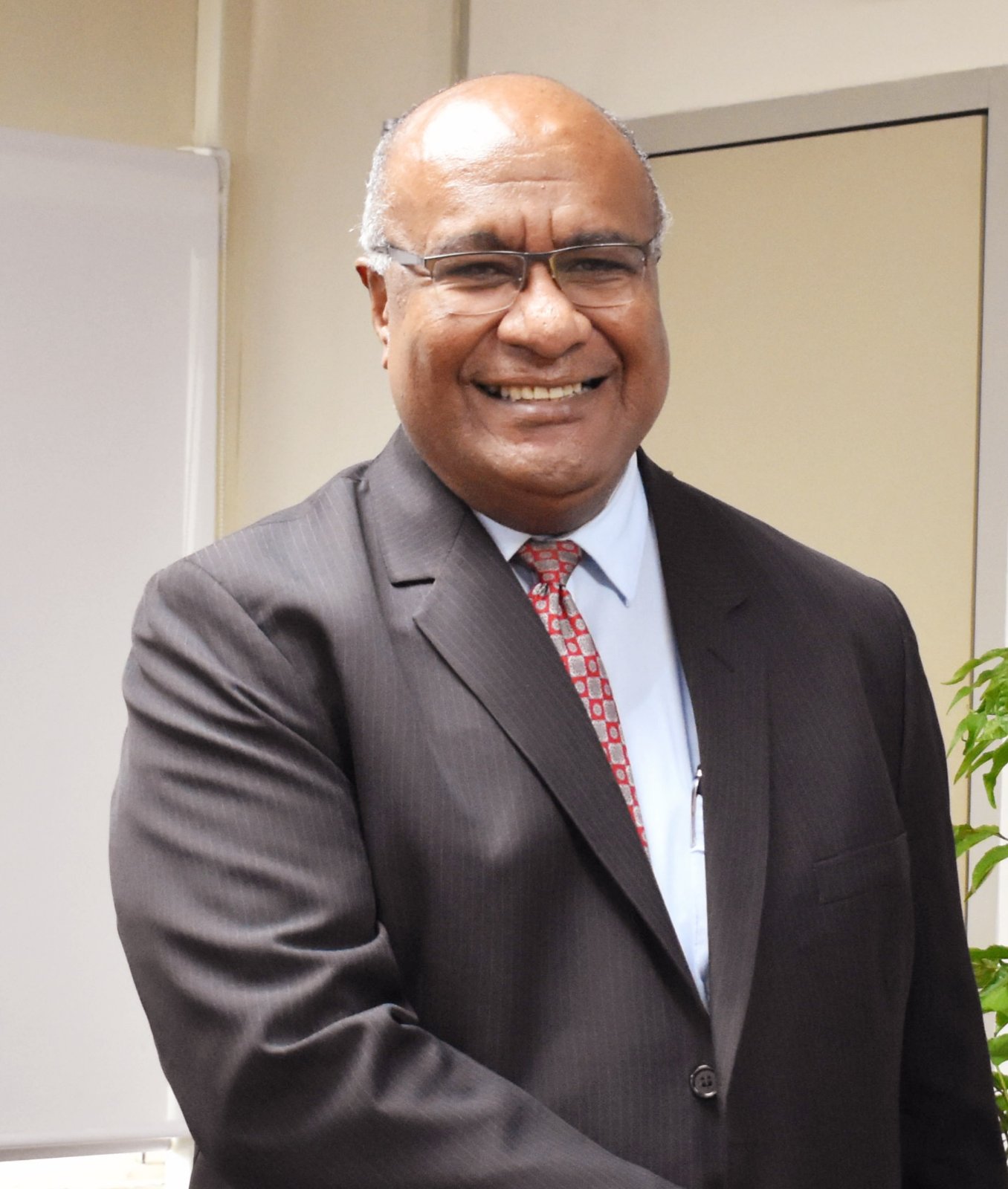Mr. Lasse Melgaard, World Bank’s Regional Representative to the South Pacific,
Mr. William Gain, Global Lead, Trade Facilitation, Customs Reform and Border Management, World Bank Group,
Dr. Filimon Manoni, Deputy Secretary-General,
Mr. Brian O’Shea – PIFS/WBG Trade Facilitation Expert,
Ms. Michele Lowe, CARICOM Secretariat,
Trade Facilitation Experts,
Distinguished Forum Participants and Senior Officials,
Ladies and Gentlemen,
Bula Vinaka and a very good morning to you all.
I have the great pleasure to welcome you all to this Regional Trade Facilitation Workshop. This Workshop is taking place at a critical time, when many countries are facing trade disruptions due to COVID-19 restrictions. This combined with the devastating impacts of climate change has caused disruptions to the flow of goods and services and led to a contraction of our Pacific economies.
In 2020, there was a global economic contraction of 4.3%, which has affected various regions differently. According to the Lowy Institute, the Pacific region has faced one of the worst economic crisis in decades, with economies contracting by more than 5% in 2020.
Both the severe climatic events and the pandemic have highlighted the importance of well-functioning supply chains to keep essential goods flowing across borders and saving lives. Trade facilitation has emerged as an effective tool to mitigate the devastating effect of such disruptions on trade by simplifying and digitalising formalities in international trade.
And the World Trade Organization (WTO)’s Trade Facilitation Agreement (TFA) provides the most progressive platform to facilitate trade efficiency and the economic development of our countries.
An article published by the World Economic Forum in April 2021, states that the pandemic has led to the increase in cost of shipping by 350%, since May 2020. This has directly affected the supply chains of Pacific island economies due to our heavy reliance on sea freight transport.
Hence, the Pacific Humanitarian Pathway was created to directly complement the WTO TFA’s Article 7.8, which is in relation to Expedited Shipments. The implementation of this provision is especially important, at a time of escalating costs in terms of transportation of goods.
Despite the surge in international shipping costs, UNCTAD (Asia-Pacific Trade Facilitation Report 2021) believes that recent developments in streamlining trade facilitation could partially suppress such increase in cost of trading across borders.
The Pacific Humanitarian Pathway provides an example of how regionalism can make a difference in this area, as it has equipped our Members with tools to address the challenge of our generation.
Ladies and Gentlemen,
To date, 154 WTO members have ratified the TFA, which consists of countries like Fiji, Samoa and Vanuatu from the region. It is envisaged that the full implementation of the TFA can cut global trade costs by 10%-18% and increase export gains up to USD 3.6 trillion per year.
Whilst members are currently undertaking various reforms to implement the TFA in their respective countries, fostering regional cooperation is critical to tackling the vulnerabilities of regional value chains.
The 2021 Global Survey on Digital and Sustainable Trade Facilitation by UNCTAD, states that the Pacific is behind other subregions in streamlining trade procedures, with an implementation rate of 40.1%. However, the region has also made substantial progress, despite the significant challenges faced.
Evidently, it is important to have regional dialogues to keep the momentum of the ongoing reforms on trade facilitation. There is a wealth of distinct experiences and institutional frameworks across countries and regions – and this underscores the importance of mutual learning and experience sharing. Therefore, by following examples of regions, such as CARICOM, we can agree on a set of key measures, where collective action can reduce the time and cost of trading across borders.
Ladies and Gentlemen,
Supporting and reviving businesses and private sector investment activity is critical for the sustainable recovery and growth of our region. As tariffs progressively decline, thanks to unilateral liberalisation and trade agreements — discussion on restrictive trade procedures and non-tariff measures have acquired more relevance. Trade frictions related to cumbersome and costly border procedures have become particularly prominent among developing countries.
Hence, in the context of rising global trade issues, regional trade facilitation mechanisms are a key means of boosting existing and emerging trade agreements, reducing costs to trade, and propelling inclusive growth. Such a mechanism can also make a difference in our ability to face the long-term challenges confronted by our region, by facilitating market access, strengthening value chains and boosting our regional economy.
Ladies and Gentlemen,
There are areas where specific trade facilitation measures could be sequenced strategically to harness trade facilitation reforms and facilitate regional integration. For instance, providing an online user-friendly repository of rules of origin and related tariff rates. This will improve transparency and predictability of regional trade agreements. It will also support MSMEs in the complex task of obtaining and interpreting related rules and regulations. Such trade facilitation reforms will also boost customs cooperation and promote information-sharing within the region.
Ladies and Gentlemen,
For developing countries, capacity development, technical assistance and funding remains critical to implementing trade facilitation reforms. This is why we appreciate the technical expertise provided by the World Bank Group and the mentoring provided by the CARICOM Secretariat. I wish to extend my personal appreciation to Dr Carla Barnett, the CARICOM Secretary General, for making this South-South cooperation possible.
Regional cooperation will continue to play a significant role in achieving efficient and resilient trade, by enabling more cost-effective and impactful responses. The task that is intended to be accomplished over the next three days is to discuss the regional strategy concept, the common challenges and possible regional implementation approaches.
I encourage you all to fully participate in this Workshop to support our region’s efforts towards sustainable development and recovery through trade and trade facilitation. I look forward to the outcomes of this Workshop.
Thank you for your attention.
Vinaka vakalevu. Thank you very much.



